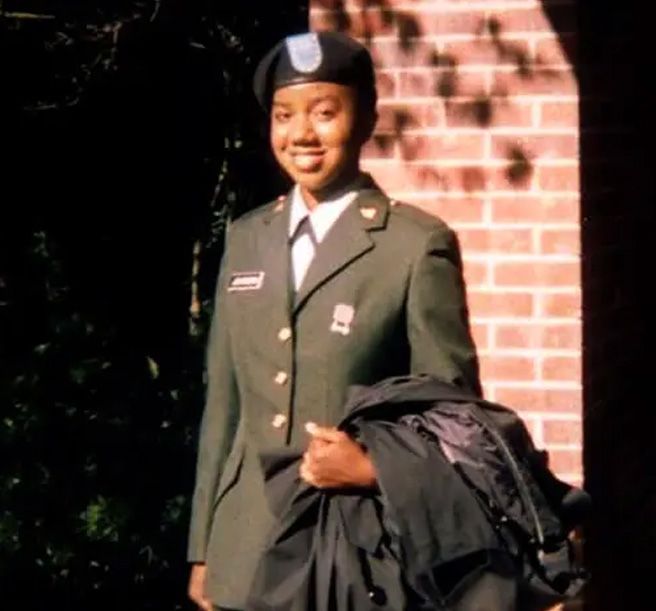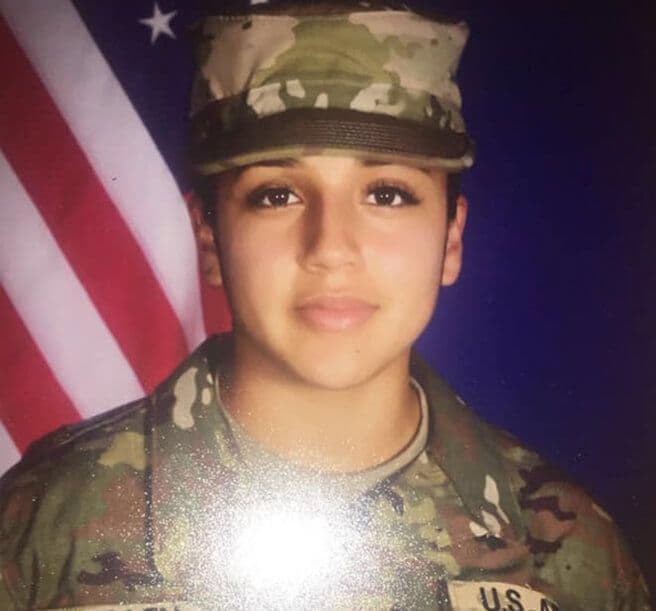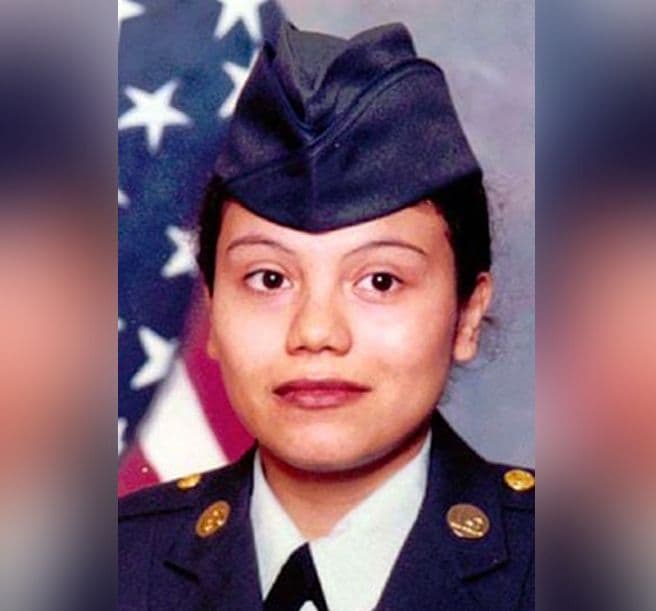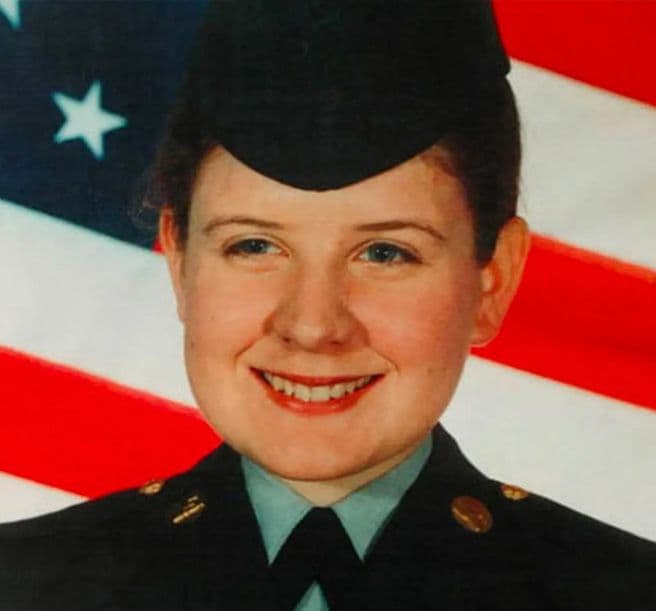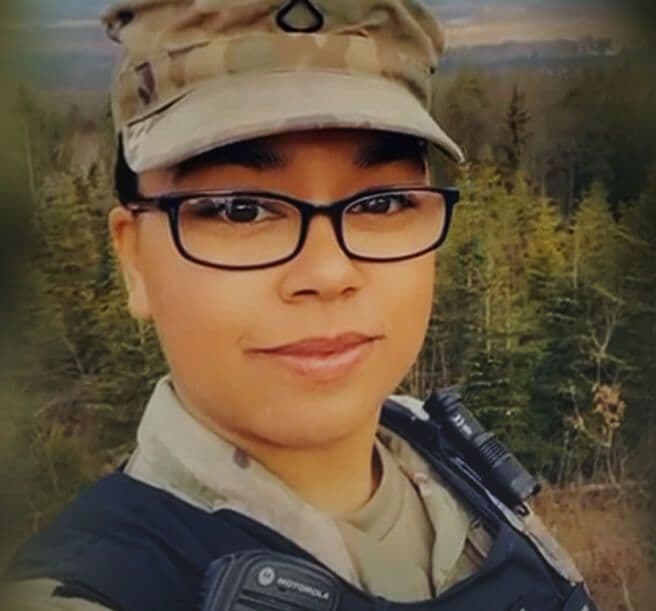LaVena Johnson grew up in Florissant, Missouri, with her father, Dr. John Johnson, a service veteran, her mother, Linda Johnson, and her four siblings. After high school, LaVena decided to enlist in the U.S. military. Her father had previously served, and she wanted to continue the family tradition.
LaVena became a Private First Class in the United States Army and was stationed in Balad, Iraq. She worked in the communications building and wrote home frequently to update her parents on her experience.
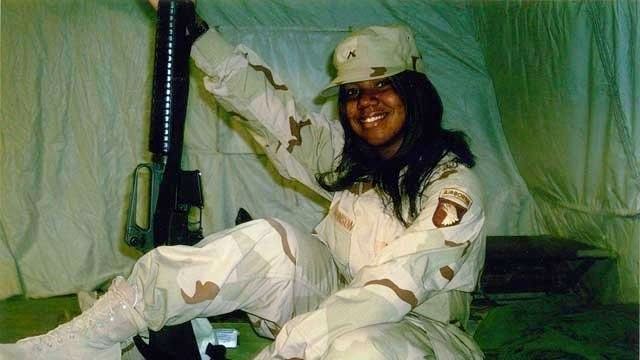
LaVena Johnson (St. Louis American)
On July 17, LaVena called her parents with the good news that she would be coming home early for Christmas and was looking forward to decorating the tree and spending time with everyone. Her mother recalled her being her usual jubilant self during the conversation.
A couple of days after this call, the Johnson family received a visit from a soldier. He informed them that LaVena had died, even suggesting that she had taken her own life, which struck her family as suspicious. They had just spoken to her days earlier, and nothing had indicated she was suicidal.
As more information came in about LaVena's death, her parents began to form a clearer picture of the events that transpired that day. LaVena got off work sometime between 4 and 5 p.m. but never made it to her physical training appointment. The Army claimed that LaVena had met up with a male soldier, spent approximately four hours with him in his room, and then the two went to the shopping area before going their separate ways.
At 1:20 am her body was found in a contractor's tent in a pool of blood with her hand covering her face. Next to her body was an M16 rile and some scattered papers.
After an autopsy, the Army officially ruled LaVena’s death a suicide. They claimed she was upset that her boyfriend of two months had broken up with her, that she burned letters from him, and then killed herself by firing an M16 automatic rifle into her mouth.
The Army recommended a closed-casket funeral, but the Johnson family opted for an open-casket service. It was during the funeral that they began noticing several discrepancies in the Army’s account. For one, LaVena's nose appeared broken, and her lips were cut. The only visible gunshot wound was a small hole on the left side of her head, even though the Army claimed she had shot herself in the mouth. The entry wound also appeared more consistent with a 9mm weapon, not an M16 rifle.
LaVena's gloves had also been glued onto her hands, which was highly irregular. When her father finally obtained the autopsy report months later, it revealed even more troubling details.
He discovered no rape kit had been conducted, and no fingernail scrapings were taken. It appeared the medical examiner had determined the cause of death to be suicide before completing a full investigation.
The family then hired a private criminal investigator to look into the case. After months of back-and-forth with the Army, they were finally granted access to the case documents, which included the original color crime scene photos.
The photos revealed severe trauma to LaVena’s face, consistent with being struck by a blunt object. Her nose was broken, she had a black eye and loose teeth, and a corrosive liquid had been poured into her genital area, likely in an attempt to destroy DNA evidence. The gunshot wound was inconsistent with suicide. Her father also questioned whether his 5-foot-1 daughter’s arms were long enough to pull the trigger of an M16 rifle cradled between her legs, as described in the Army’s report.
The Army stated that no rape kit was performed because there appeared to be no signs of a struggle. Despite the lack of a suicide note, the absence of a recovered bullet, little to no gunshot residue on her hands, and a blood trail found outside the tent, the Army claimed LaVena had been depressed and unstable in the days leading up to her death and closed the case.
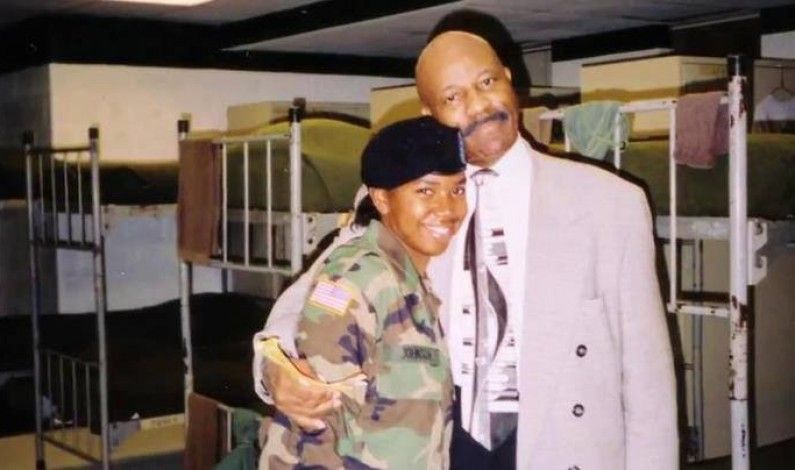
LaVena Johnson and her father, John Johnson (The Sleuth Journal)
LaVena’s father, John Johnson, believes his daughter was assaulted and murdered, and that the crime scene was staged to look like a suicide to protect someone of high rank or influence on the base. The Johnsons are not alone in their struggle. Several families have lost daughters in the military under mysterious circumstances labeled as “suicides.” In many cases, they are left with unanswered questions, implausible explanations, and a lifelong battle for the truth.
Below you can find some ways to help, and resources to dig deeper into LaVena's case and other instances of military injustice.
